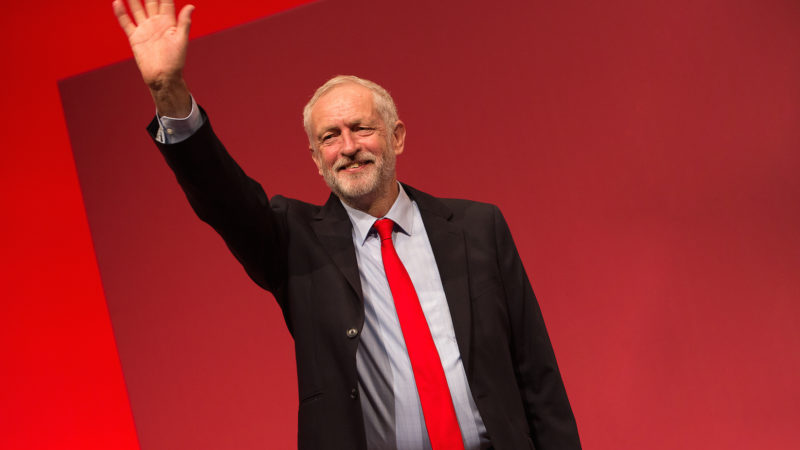
It’s official: Labour is backing a fresh public vote on the UK’s relationship with the EU. Last night, Jeremy Corbyn told the parliamentary party that an official amendment will be tabled to the government’s neutral Brexit motion this week setting out his “five demands” for Brexit. This seeks to change our negotiating position, but will be rejected by the Commons. Then the leader revealed we had reached the final stage of Labour’s conference policy, the moment many have been fighting for and others have been dreading, as he said that “in line with our conference policy, we are committed to also putting forward or supporting an amendment in favour of a public vote to prevent a damaging Tory Brexit being forced on the country”.
Why now? There is speculation that the resignations of pro-EU MPs last week prompted the shift, but this is dismissed by those who argue that this plan has been in place since September. Whatever the reason, we know that Corbyn is still uneasy backing a ‘people’s vote’, as our dozens of Labour MPs including frontbenchers. Even Emily Thornberry, who was comfortable talking about the development on Newsnight, once said backing another referendum would give the impression that the political class thinks voters are stupid.
These tensions are causing confusion. Thornberry is clear that supporting another referendum is conditional on Labour’s plan being rejected tomorrow; Keir Starmer says the ballot paper options would be ‘Remain’ or ‘credible deal’, with Labour campaigning to remain, and the party would continue to push for a referendum even if May’s deal passes. But the leadership wants to play it more by ear. Labour sources are briefing that firm decisions haven’t yet been made on such details, which prompted Tom Watson to tweet that press officers are undermining the “sovereignty” of shadow cabinet members.
The bottom line is that ‘no deal’ has become more likely and Labour has felt a duty to use whatever it has in its arsenal to block that outcome. Both morally (to help prevent the economic fallout) and electorally (to ensure it can’t be blamed for it). And the other bottom line is that – while this position, combined with the Prime Minister moving closer towards Article 50 extension, may shift the Brexit Overton window, and have (as yet unknown) consequences at the next election – the votes just aren’t there.
There is currently no Commons majority for a ‘people’s vote’. Only nine (former/current) Tories have backed the idea so far. John Mann, Kevin Barron and other Labour MPs in Leave seats have already made clear they’ll be voting against. Caroline Flint is calling for a free vote (no whip). Remember that 14 Labour MPs voted against the last Cooper amendment, while eight shadow ministers abstained, and another referendum is more contentious than a Brexit delay. People’s Vote campaigners will say, forget electoral calculations and stand up for what’s right. Those sympathetic to Corbyn’s hesitance will say, we might have just cost ourselves marginal Leave seats, and for what? The interesting question is whether this move will have a long-term impact on Labour’s policy towards membership of the EU, and there is no way of knowing the answer to that yet.
Sign up to LabourList’s morning email for everything Labour, every weekday morning.



More from LabourList
‘I spent years telling workers the law couldn’t help them – that has changed’
Josh Simons resigns as Cabinet Office minister amid investigation
‘After years of cuts, Labour’s local government settlement begins to put things right’